News
FBI warned Nigeria about scammers, kidnappers using cryptocurrency to defraud – Report

There are indications that the Nigerian government has been warned by the United States’ Federal Bureau of Investigation (FBI), about the activities of fraudsters using cryptocurrency to bring illegally obtained hundreds of millions of dollars into the country, mostly from the US.
This was said to have particularly targeted COVID-19 stimulus packages designed to cushion the impact of lockdown measures on businesses and working families in these countries.
The FBImis the US government’s main law-enforcement and domestic intelligence agency
A reliable source at the Presidency said, “These fraudsters remitted between $200 and $300 million to Nigeria every week, using cryptocurrencies.
“The central bank and the Federal Government were clearly alarmed by this development and had to act fast before irreparable damage is done to the economy.”
The sourced added that more disturbing was that intelligence reports indicated that kidnappers had switched to bitcoin for ransom payments, making it increasingly difficult to trace.
A cryptocurrency (or crypto) is a digital unregulated currency that could be used to buy goods and services, but uses an online ledger with strong cryptography to secure online transactions.
Much of the interest in the currency, not backed by any government, is to trade for profit, with speculators at times driving prices skyward.
In an interview at a Reuters’ online event last week Wednesday, President of the European Central Bank, Christine Lagarde said of bitcoin: “It’s a highly speculative asset that has led to some reprehensible activity, including money laundering, and any loopholes need to be closed.
“There has to be regulation. This has to be applied and agreed upon at a global level because if there is an escape that escape will be used.”
But the FBI was said to have discovered that fraudulent Nigerians, popularly known as yahoo boys, took control of large chunks of money released as stimulus in the wake of the devastating effects of the COVID-19, which has put many Americans out of jobs.
To avoid detection, the fraudsters had been reportedly sending millions of dollars to Nigeria through cryptocurrency.
This made it difficult for the authorities in both Nigeria and the US to trace the illicit money.
To prevent the use of the funds to destabilise the Nigerian economy, the Central Bank of Nigeria was prompted to wield the big stick.
In the last six months, Nigeria is said to have become the second country in the world with the biggest cryptocurrency transactions.
To make matters worse, investigations by FBI showed Nigeria did not have the underlining economic base to justify the massive flow of funds on a weekly basis.
To compound the issue was how the inflows were being routed, leaving investigators puzzled by the complicated channels in the digital money world of anonymity.
After the FBI tip-off that these funds being pumped into cryptocurrency were products of fraud, the Federal Government, acting through the CBN, had to ban cryptocurrencies in Nigeria.
The CBN had, at the weekend, directed banks and other financial institutions to immediately close any accounts dealing in cryptocurrency or facilitating payment for cryptocurrency exchange, with immediate effect.
The banking regulatory authorities directed banks to expose any individual and entity running such accounts, warning that failure to adhere to the directives would attract strict sanctions.
The CBN, in its circular on the issue, cautioned deposit money banks, (DMBs) non-bank financial institutions (NBFIs) and other financial institutions (OFIs) as well as members of the public on the risk associated with transactions in cryptocurrency.
The Director of Banking Supervision, Bello Hassan, and the Director of Payments System Management Department, Musa Jimoh, signed the circular.
It said, “Further to earlier regulatory directives on the subject, the Bank hereby wishes to remind regulated institutions that dealing in cryptocurrencies or facilitating payments for cryptocurrency exchanges is prohibited.
“Accordingly, all DMBs, NBFIs and OFIs are directed to identify persons and/or entities transacting in or operating cryptocurrency exchanges within their systems and ensure that such accounts are closed immediately.
“Please note that breaches of this directive will attract severe regulatory sanctions. This letter is with immediate effect.”
But the CBN’s action immediately attracted heavy criticisms from the Nigerian public, with a former Vice President, Alhaji Atiku Abubakar, advising the apex bank to reverse the decision, arguing that the country could not close its economy at this time.
In a statement personally signed, Atiku said the number one challenge facing Nigeria was youth unemployment, explaining that it was not just a challenge, but also an emergency, because it affected the economy, and exacerbating insecurity in the nation.
Speaking against the backdrop of the decision of the CBN to ban and restrict banks transactions in the cryptocurrencies, Atiku said, “What Nigeria needs now, perhaps more than ever, are jobs and an opening up of our economy especially, after today’s report by the National Bureau of Statistics indicated that foreign capital inflow into Nigeria is at a four year low, having plummeted from $23.9 billion in 2019, to just $9.68 billion in 2020.”
He said already, the nation had suffered severe economic losses from the border closure, and the effects of the #COVID19 pandemic.
Atiku stated, “This is definitely the wrong time to introduce policies that will restrict the inflow of capital into Nigeria, and I urge that the policy to prohibit the dealing and transaction of cryptocurrencies be revisited.
“It is possible to regulate the sub-sector and prevent any abuse that may be inimical to national security. That may be a better option, than an outright shutdown.
“There is already immense economic pressure on our youths. It must be the job of the government, therefore, to reduce that pressure, rather than adding to it.”
News
INEC May Adjust 2027 Election Dates Over Ramadan Concerns
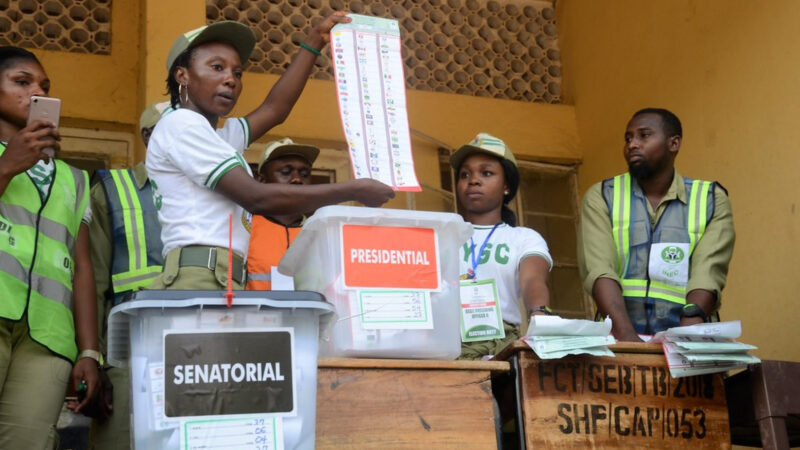
INEC May Adjust 2027 Election Dates Over Ramadan Concerns
The Independent National Electoral Commission (INEC) has acknowledged growing concerns over the timing of the 2027 general elections, which currently coincide with the holy month of Ramadan, and said it may seek legislative intervention if necessary to ensure full electoral participation.
In a statement released on Friday, INEC National Commissioner and Chairman of the Information and Voter Education Committee, Mohammed Kudu Haruna, said the commission is sensitive to public concerns and is consulting with stakeholders on possible adjustments to the election timetable.
The commission explained that the current schedule, developed in strict compliance with the Constitution of the Federal Republic of Nigeria, 1999 (as amended), the Electoral Act, 2022, and INEC’s own Guidelines and Regulations for the Conduct of Elections, 2022, sets Saturday, February 20, 2027, for the presidential and National Assembly elections, and Saturday, March 6, 2027, for the governorship and State Houses of Assembly elections. Party primaries are slated for May 22 to June 20, 2026.
READ ALSO:
- Man Allegedly Kills Brother in Rivers Over Witchcraft Accusation
- Regina Daniels Gifts Mother Two Luxury SUVs in Emotional Surprise
- El-Rufai Alleges Ribadu Ordered Arrest, Says Intercepted Calls Exposed Plot
However, INEC noted that these dates overlap with Ramadan, a period of fasting, prayer, and religious observances for Muslims, which could affect voter turnout and participation, particularly in predominantly Muslim areas. The commission emphasized that any adjustment to the timetable will remain consistent with constitutional and statutory requirements.
“The commission wishes to assure the public that it remains sensitive to all legitimate concerns that may impact electoral participation and the overall conduct of elections. In view of these representations, INEC is currently undertaking consultations and may, where necessary, seek appropriate legislative intervention,” the statement read.
Several political figures have already expressed concerns. Former Vice President Atiku Abubakar called on INEC to reconsider the February 20 date, citing potential disruption of voting during Ramadan. Former presidential aide Bashir Ahmad also urged the commission to review the schedule to avoid disenfranchisement of Muslim voters.
The commission reaffirmed its commitment to conducting transparent, credible, and inclusive elections. It promised to keep the public informed of any adjustments to the election timetable arising from consultations with political parties, civil society, and religious stakeholders.
The debate over the 2027 election schedule highlights the challenges of balancing constitutional timelines with religious and cultural sensitivities, underscoring the importance of ensuring accessible and fair elections for all Nigerians.
INEC May Adjust 2027 Election Dates Over Ramadan Concerns
News
2027 General Elections: INEC Announces February 20 for Presidential Poll
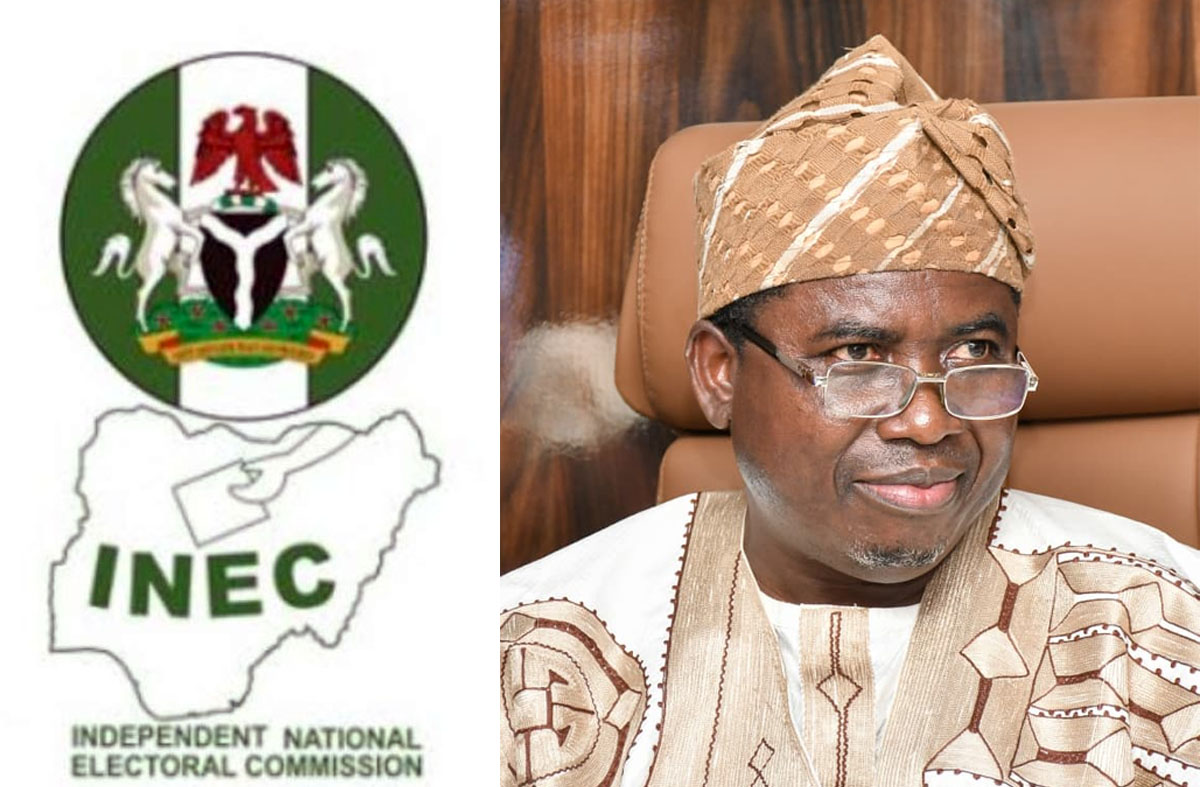
2027 General Elections: INEC Announces February 20 for Presidential Poll
The Independent National Electoral Commission (INEC) has officially fixed February 20, 2027 for Nigeria’s presidential and National Assembly elections, while governorship and State Houses of Assembly elections will be held on March 6, 2027.
INEC Chairman, Joash Ojo Amupitan, announced the dates on Friday during a media parley at the Commission’s national headquarters in Abuja, describing the move as the formal commencement of the 2027 general elections process.
According to the INEC chairman, the release of the Notice of Election and the comprehensive timetable complies with provisions of the 1999 Constitution of Nigeria and the Electoral Act 2022, which require the Commission to publish election notices ahead of the polls.
“It is with a deep sense of constitutional responsibility and commitment to democratic consolidation that the Commission today formally releases the Notice of Election and the Timetable and Schedule of Activities for the 2027 General Elections,” he stated, adding that any earlier unofficial announcements of election dates were misleading and did not originate from INEC.
READ ALSO:
- EFCC Nabs Three in Borno Over Viral ₦500 Naira Mutilation Video
- Omokri Accuses El-Rufai of Rights Abuses During Kaduna Governorship
- Lagos Motor Fair, Autoparts Expo to begin March 17, targeting Investment, Industry Growth
Amupitan disclosed that the tenure of the President, Vice President, governors, and deputy governors — except in off-cycle states — will expire on May 28, 2027, while the National and State Assemblies will be dissolved on June 8, 2027. He noted that the timeline provides sufficient room for political parties to conduct primaries, submit nomination forms, and organise campaigns in line with electoral regulations. Campaigns, he added, must end 24 hours before election day, as stipulated by law.
The INEC boss warned political parties to strictly comply with the approved schedule, stressing that the Commission would enforce the law where necessary. “Political parties are strongly advised to strictly adhere to the timelines. The Commission will not hesitate to enforce compliance with the law,” he said.
He also reaffirmed INEC’s commitment to deploying technology to enhance transparency in the 2027 general elections, updating the national voters’ register, strengthening collaboration with security agencies, and expanding voter education nationwide.
Calling for peaceful conduct, Amupitan urged political parties to organise credible primaries, shun violence and inflammatory rhetoric, and uphold internal democracy. He also appealed to candidates, supporters, civil society groups, the media, and citizens to play constructive roles throughout the electoral cycle.
“As we commence this national exercise, I assure Nigerians that the Commission is fully prepared and determined to deliver elections that reflect the sovereign will of the people,” he added.
With the formal release of the INEC 2027 election timetable, stakeholders are now expected to begin full-scale preparations for Nigeria’s next general elections.
2027 General Elections: INEC Announces February 20 for Presidential Poll
News
INEC Seeks N1.04 Trillion for 2027 Elections, Operational Needs – Amupitan

INEC Seeks N1.04 Trillion for 2027 Elections, Operational Needs – Amupitan
The Independent National Electoral Commission (INEC) has requested a total of ₦1.04 trillion from the Federal Government of Nigeria to fund off-cycle elections this year, the 2027 general election, and its operational activities in 2026, subject to approval by the National Assembly of Nigeria.
The request was made by INEC Chairman Prof. Joash Amupitan while defending the commission’s spending proposal before the Joint Committee on Electoral Matters of the National Assembly. Amupitan urged lawmakers to grant timely approval and release of funds, warning that delays could hamper preparations for upcoming elections.
According to the INEC chairman, the commission is seeking ₦873.778 billion for the 2027 general election and ₦171 billion for its 2026 operational activities. The 2026 allocation covers Federal Capital Territory (FCT) area council elections, by-elections scheduled for next week, and the Ekiti and Osun governorship elections slated for June and September.
READ ALSO:
- Alake: Killers of Mining Marshal Will Face Full Wrath of the Law
- Lagos Police Launch Manhunt for Suspect in Brutal Ajah Murder
- Lookman Shines as Atlético Madrid Hammer Barcelona 4-0
Breakdown of the 2027 Election Budget
The N873.778 billion earmarked for the 2027 general election includes:
- ₦379.748 billion for operational costs
- ₦92.317 billion for administrative expenses
- ₦209.206 billion for technology
- ₦154.905 billion for election capital costs
- ₦42.608 billion for miscellaneous expenses
For the N171 billion proposed for 2026 operations, Amupitan said:
- ₦109 billion would cover personnel costs
- ₦18.7 billion for overheads
- ₦42.63 billion for election conduct
- ₦1.4 billion for capital expenditure
He noted that the budget was prepared in line with Section 3(3) of the Electoral Act 2022, which mandates submission of election budgets at least one year before a general election.
Calls for Timely Fund Release and Dedicated Network
Amupitan criticized the envelope system of budgeting, describing it as unsuitable for INEC’s operational needs that often require urgent interventions. He appealed for a bulk release of funds, highlighting the need for a dedicated communication network to enhance accountability and transparency during elections.
“If we have our own network, Nigerians can hold us responsible for any hitch,” he said.
Lawmakers Back INEC’s Proposal
Senator Adams Oshiomhole argued that no government agency should impose the envelope budgeting system on INEC, emphasizing that full release of funds is critical for smooth election preparations. Similarly, House member Billy Osawaru called for the budget to be placed on first-line charge, allowing the commission access to all funds immediately.
Following deliberations, the joint committee approved a one-time release of INEC’s annual budget and pledged to consider increasing allowances for National Youth Service Corps (NYSC) members deployed for election duties. The proposed increase would cost ₦32 billion, equating to ₦125,000 per corps member.
Senator Simon Lalong, chairman of the Senate Committee on Electoral Matters, assured INEC of lawmakers’ support, pledging close collaboration to ensure a successful 2027 election. House Committee chairman Bayo Balogun also promised legislative backing but cautioned INEC against overpromising, citing prior misrepresentations about real-time uploads to the INEC Result Viewing (IReV) portal, which was never provided for in the Electoral Act but only in INEC regulations.
The approval of the commission’s budget and operational requests is expected to enhance election preparedness, technological deployment, and transparency ahead of the 2027 general elections, while addressing logistical and operational challenges that have hampered past polls.
INEC Seeks N1.04 Trillion for 2027 Elections, Operational Needs – Amupitan
-

 metro2 days ago
metro2 days agoIKEDC Sets Feb 20 Deadline for Customers to Submit Valid IDs or Face Disconnection
-

 Education2 days ago
Education2 days agoSupreme Court Affirms Muslim Students’ Right to Worship at Rivers State University
-

 metro1 day ago
metro1 day agoLagos Police Launch Manhunt for Suspect in Brutal Ajah Murder
-

 News1 day ago
News1 day agoAso Rock Goes Solar as Tinubu Orders National Grid Disconnection
-

 Business2 days ago
Business2 days agoNaira Could Trade Below ₦1,000/$ With Dangote Refinery at Full Capacity — Otedola
-
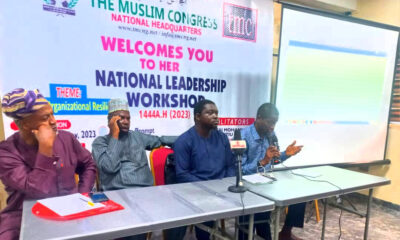
 metro3 days ago
metro3 days agoKwara, Katsina Bloodshed: TMC Condemns Attacks, Dismisses ‘Jihadist Preacher’ Claims
-

 metro2 days ago
metro2 days agoArmy University Professor Dies in Boko Haram Captivity After Nearly One Year
-

 International2 days ago
International2 days agoTrump Halts Minnesota Immigration Crackdown After Fatal Shootings, Protests



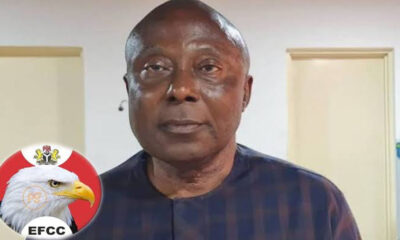









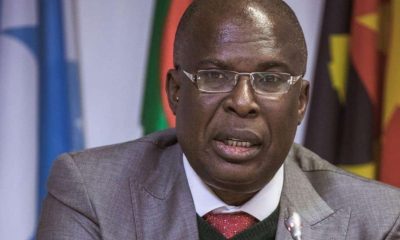


You must be logged in to post a comment Login